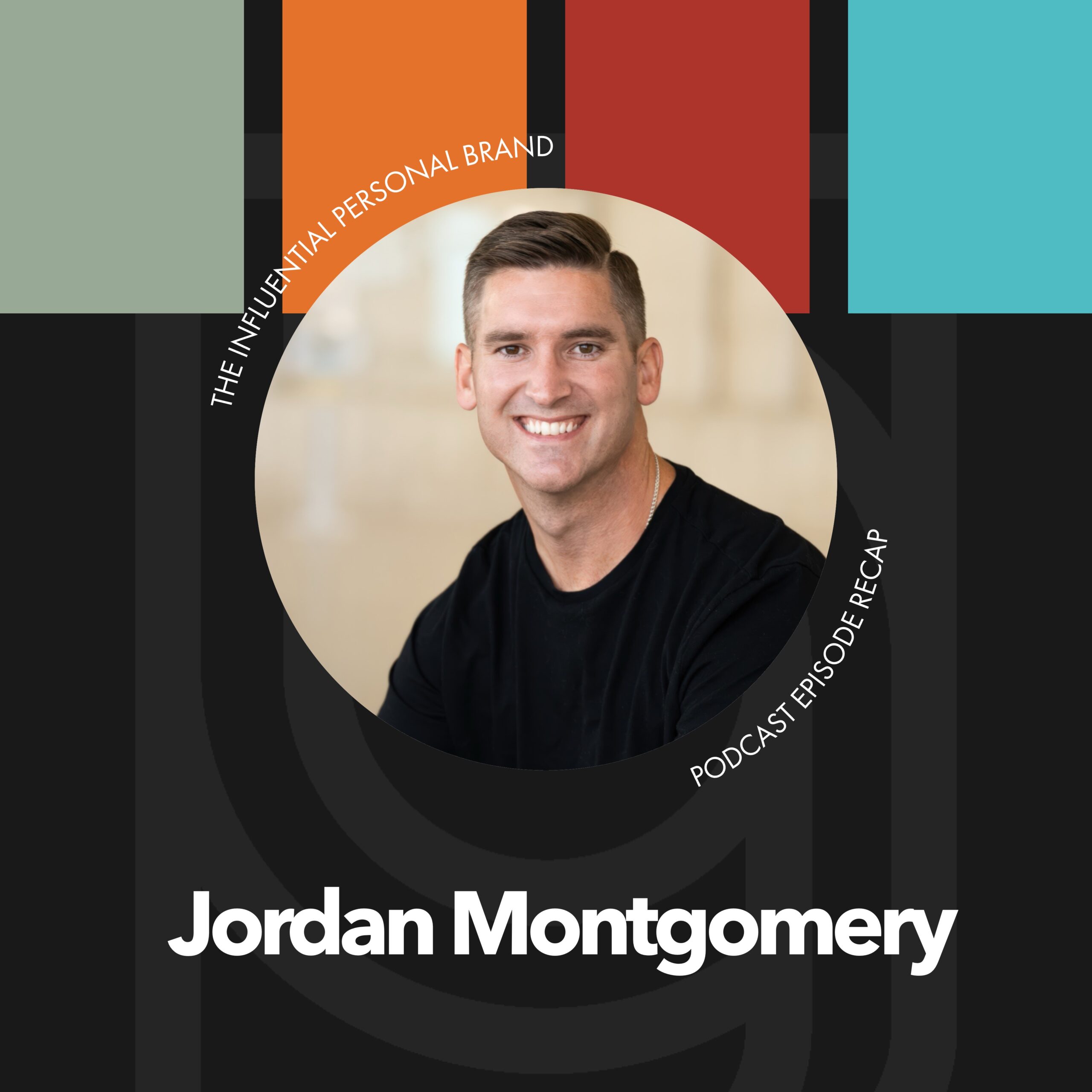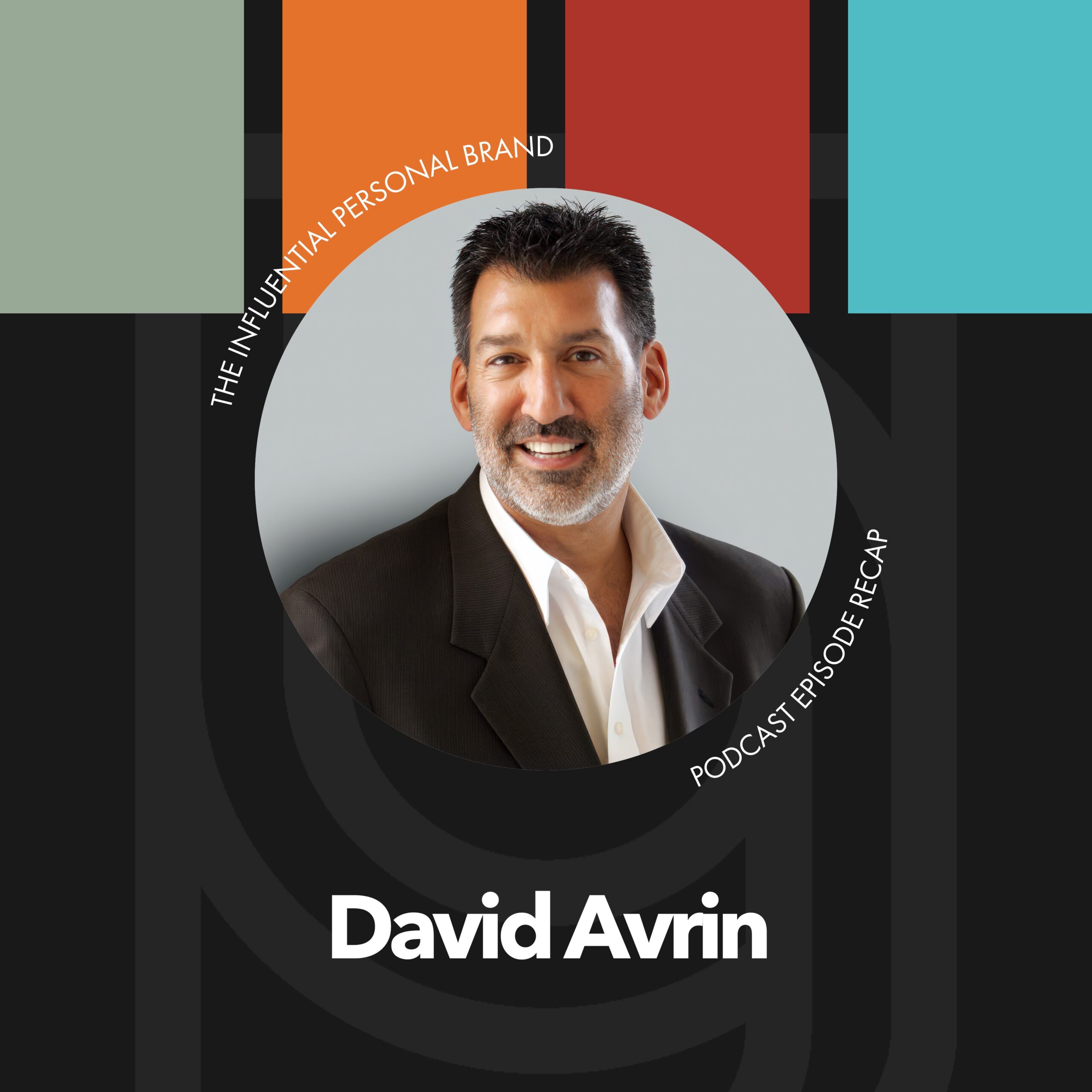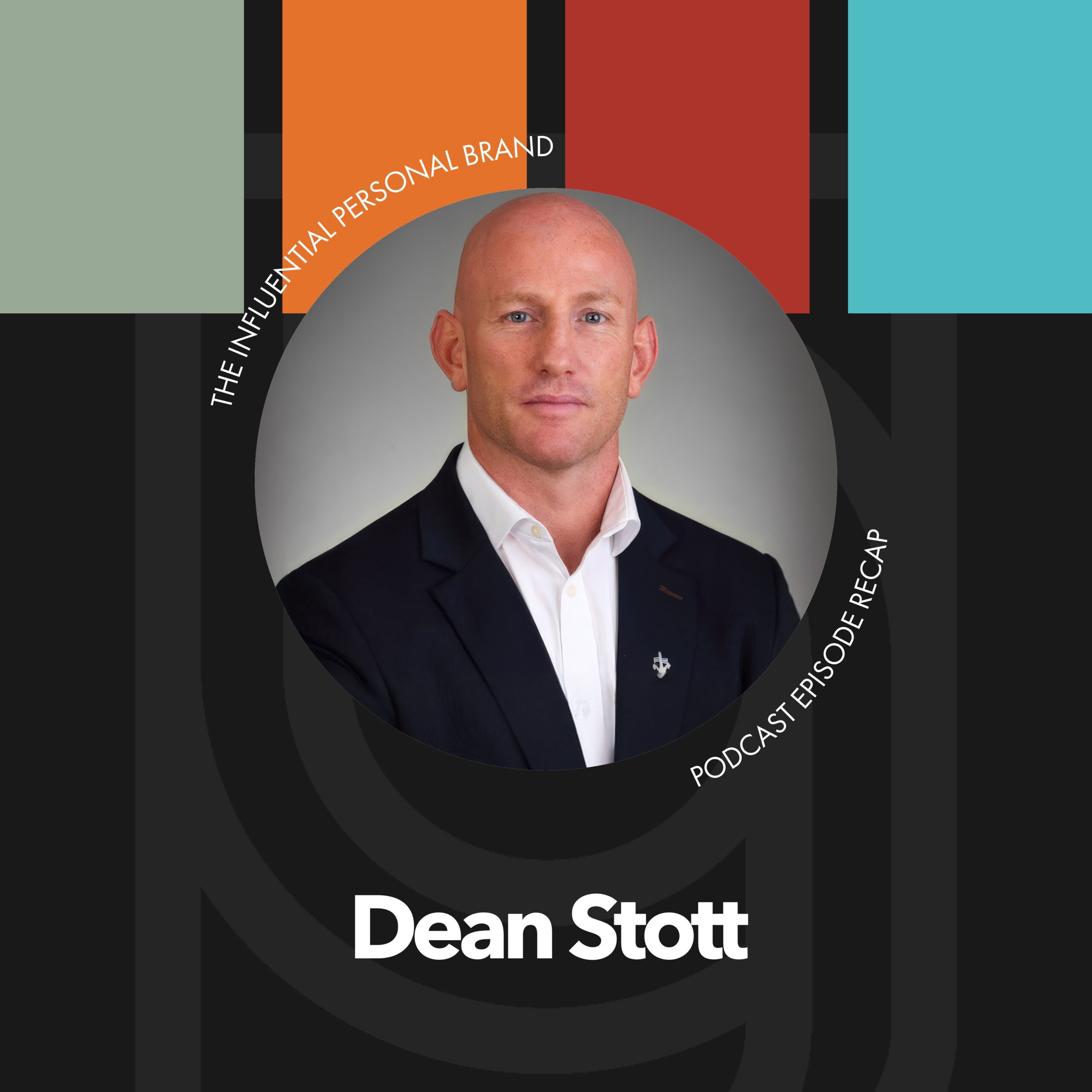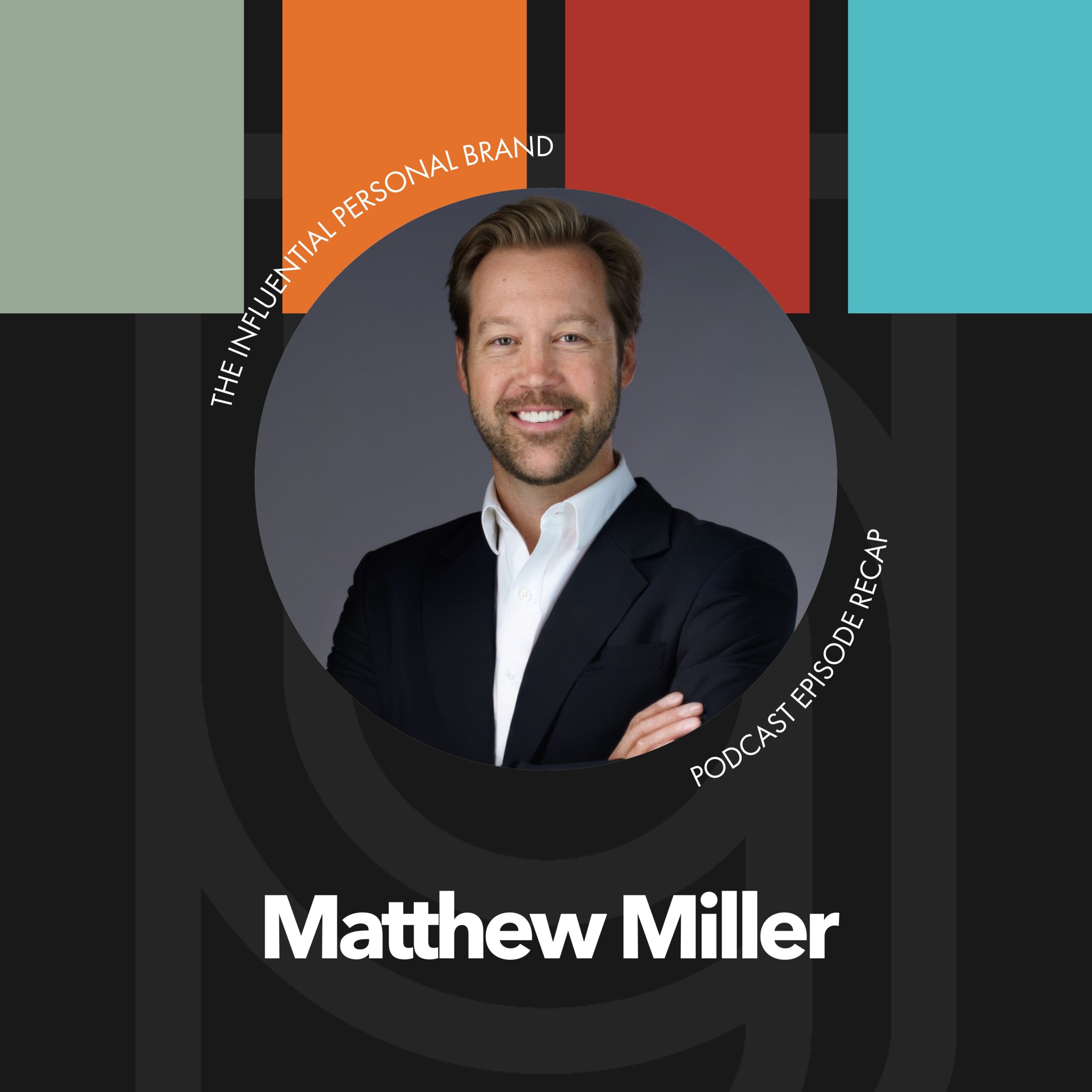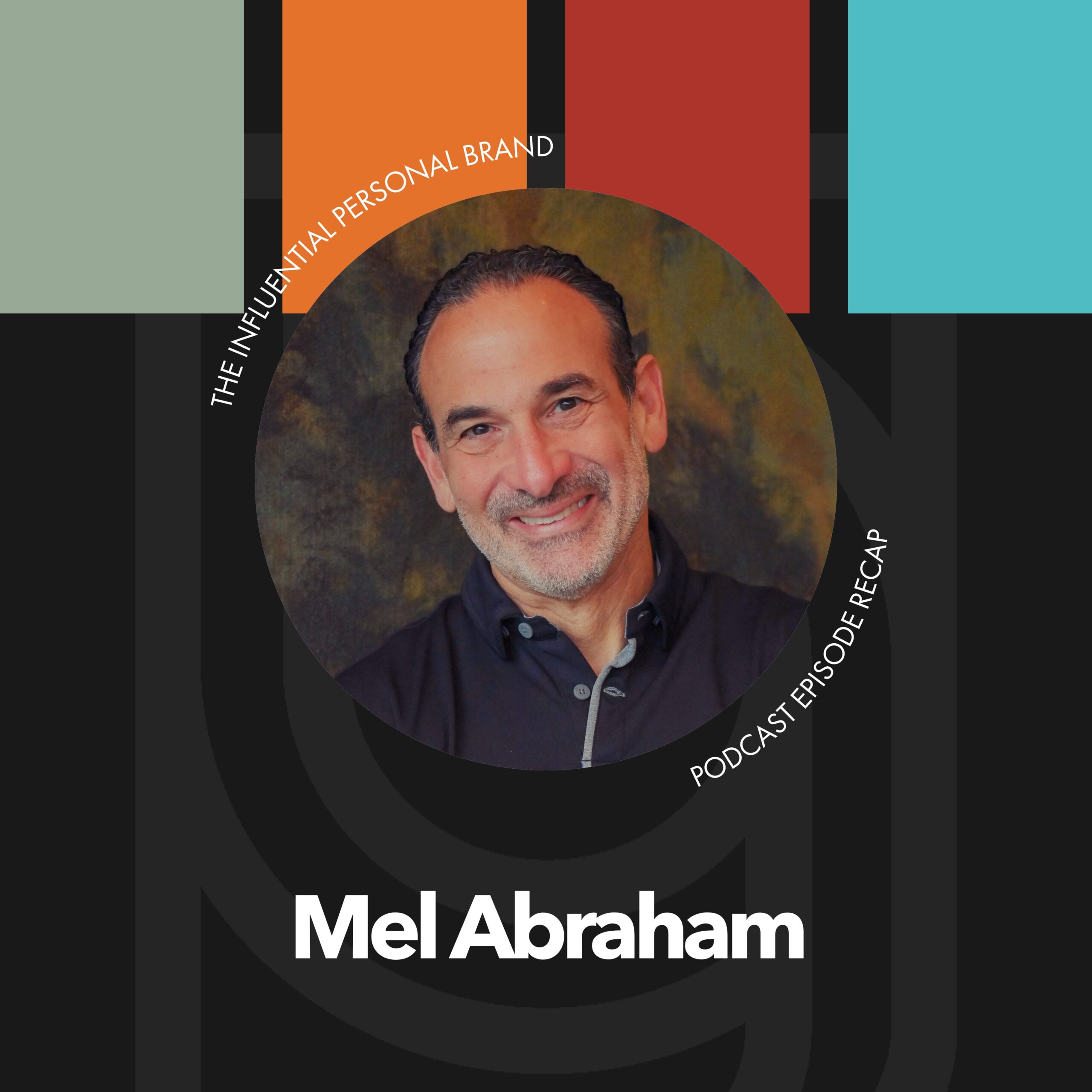RV (00:02):
On this episode of the influential personal brand podcast, I had a chance to interview her interview, a master interviewer about he prepares his interviews, his guests, uh, obviously I’ve known Ken for a long time. It was actually my first ever recurring media appearance was being on Ken’s old show back when he was in Atlanta. So this was really great. I’ve always loved Ken as an interviewer. And, uh, I’m joined of course by our CEO, my business partner, my wife, aj Vaden, uh, she is here. So we’re breaking this down. I’m going to hop right in to probably the, I guess probably the, the biggest takeaway or at least the first like this, this was a big one was when Ken said, don’t listen to what they are saying, but how they are saying it. And listen for the emotions, listen for kind of like underlying emotions that they might be experiencing that they’re not sharing.
RV (01:01):
And, you know, I thought this was really good because I, I think a lot of personal brands are doing interviews these days for whatever, for, for their, for their book, for their podcast, for their, you know, live show, whatever. But it also reminded me of the days of sales, like in teaching sales, where you’re, when, when you do sales training, you’re listening, you’re listening to what they’re saying, but you’re kind of listening for what’s behind the scenes. And I never really equated those two things like, oh, this is a skill that, you know, I kind of learned in sales that really applies to being a great interviewer. So that
AJV (01:36):
Was, that was the question. Yeah, exactly. Exactly. That’s a good correlation there.
RV (01:42):
Yeah. It’s stuck that stuck with me. So what was your, what was your first takeaway? I
AJV (01:46):
Think the first one for me, I thought was really important and overarching is something that he talked about that he’s never intimidated when interviewing guests. And I think this is really important because we listened to a lot of podcasts interview. A lot of people, we are interviewed by a lot of people. Um, but I think there’s some real power in going first. Someone here was, you know, doing interviews of presidents and world leaders and various significance, uh, to give significantly low known individuals is that it’s like, you can’t be intimidated when you’re interviewing your guest because when they’re your guests, I get your show, right? Like you’re, you’re the boss, you’re, you’re the one leading the charge. And I loved, uh, he shared this example about Tom Brady, right. But he said, I’m never intimidated because of preparation and experience. Not because I know this person so well, or we’ve had all of these intimate conversations, it’s like, no, I prepared.
AJV (02:43):
And I’ve done this enough to know what questions make a difference and how to pull out really good answers. And he said, I love this little quote, relentless preparation leads to reflexive performance. I thought that was really good. Um, and then also just, you know, using this Tom example about, you know, him as a quarterback and how he can like lead this team on the field war, it’s like he didn’t go out there and do that for the first time. Right. That didn’t happen on try number one, but at some point by doing it enough times and preparing enough, it really becomes instinctive. Right. Um, and it’s, it’s not like you’re going out there going, okay, I’m going to study up on every single person to the, you know, millions degree, even though we’ve had other guests come on and say, that’s their unique advantage.
AJV (03:29):
Right. They do it. And that’s okay. But at some point you got to just be a good enough interviewer where you know, what questions to ask and you know, what to, how to pull out the question behind the question. And I thought your point was really good. It’s, it’s being intuitive enough that you can listen to the emotion versus just the words. But to me, it was more about, uh, you’ve got to know what you’re doing enough, that it really becomes instinctive so that you’re not worried about what’s the next question. I’m going to answer that you’re just present in the interview. Right? And I, this is how I’ll wrap this up. This was my, I thought this was the most interesting part in my first point, which was, he said always, always the best parts of the interviews are the ones that you do not plan. Right. It’s the best parts. And I just think that’s true in life. That’s true in life. Um, but it’s like the best part. So the parts that you don’t plan, but you can only do that if you’re being present and what’s really happening versus being nervous or worried about your list of questions or trying to make something fit, but don’t do that. Just be prepared enough and confident enough that you can be instinctively present in the conversation because that’s when the magic happens.
RV (04:44):
Yeah. I think it’s ironic how though, it’s almost like the more you plan, the more you’re able to do things spontaneous and unplanned just where that magic happens. So I want to dovetail on a dovetail off that because, um, this was going to be my third point. But since you were talking about prep, my second big takeaway was just how, like tactically, how he preps for an interview. I remember the interview we did with Jordan harbinger, which you can go back and listen to y’all, it’s still up on the podcast. Or if you, you go to our influential, personal brand, summit.com, you can listen to it there. But, um, Jordan reads like the entire book of every guest and his prep. That is his competitive advantage of one of the things he does. But he’s a, he’s a full-time interviewer, like that’s his gig. But what Ken shared here was that there were three, three things about how he preps number one asks, how can this guest provide value to my audience?
RV (05:43):
That is the core of it. Right. And putting yourself in the audience’s shoe shoes, um, was huge. And then he said, right, the last question first and right, the first question second, that was super tough. I love that. I thought it was super practical because it, if you write the last question first, it kind of tells you, oh, this is however we get there. This is sort of the arc that I’m wanting to go on, which I thought was powerful. And then the first question, second of which I think it’ll really stick with me, those two things. And he said, Hey, that first question, I always try to focus on an intimate detail from their life. That’s basically, I don’t think Ken said it quite like this, but at what resonated with me was he was going ask them a question about a detail of the, of their life that a normal interviewer never would have done enough prep work to know that question, to ask in the first place, because it creates that connectivity and it lets their guard down. Like it’s something they’re super passionate about. That’s maybe even unrelated to the interview. So a couple ninja tips there that are super practical on how to do expert interview prep. Yeah.
AJV (06:53):
Well, I’ll, I’ll dovetail off of your number two, because that was, um, because I, I wrote that down too, as a part of my point too, which is, you know, the most important thing is to really go, what’s the last question I want to ask and really like, you know, orchestrate the whole interview around knowing that, and everything’s leading up to that. Um, but I also wrote down a couple of other things that were very tactical and very technical. That would be very helpful. It’s just, first of all, you have to know as the host, right? The interviewer host of whatever it is that the interviewer is, what does your audience want to know? Question one, right? Question two. What is your audience need to know? And then three, what can my guest through their experience and expertise give to my audience based on those two things.
AJV (07:49):
I love that. And I think that is really a healthy juxtaposition of making the interview about both the guest and the audience. And I think one of the things that he had mentioned was that, you know, a great interviewer makes the interview all about the guest. And I would just add onto that is like a great interviewer, makes it all about the guest in relation to the audience. And I think it’s just this really healthy juxtaposition of like, yeah, it’s all about the guest. It’s not trying to highlight anything from the host experience or their background or their whatever. It’s like, no, this is really just about you, the guest and how you, the guests can provide value to the people who are listening. So what is, what do the people listening want to know? What do they need to know? And what can you, the guest give to them? And those two regards and your job as the interviewer is to make that connection.
RV (08:49):
That’s good. That’s good. Yeah. I like that. That, that’s a good thought. Like you have to know what your audience wants in order to be a great interviewer in order to be able to know what, what, how can I, what do I need to ask and how do I get the value out of them? You’ve got to be connected to your audience too. Um, I love that. So the, my third takeaway, which was really gonna be my second takeaway was about making your, how to do your interview in a way that it is entertaining also. And it kind of ties to what my first point was. But I asked Ken specifically about radio shows because radio shows are really difficult. Um, I did one for a while. Terrestrial radio Egypt probably remembers those day. I wasn’t very good at it,
AJV (09:32):
But we had the part of our past,
RV (09:38):
Well, it’s hard because it’s live and it’s, everything is compressed. There’s like, you’ve got, you’ve got six minutes to build rapport, get to know this person, get their backstory, get into the issue, solve their problem. And it’s like doing this in six minutes and be entertaining all at the same time. It’s really difficult. But when, when Ken basically said something to the extent of, of basically if you can get them to share their heart, it will be both powerful and entertaining. Um, so it’s like if they just talk from their head, it might be useful and educational, but if you can get them to share their heart, that will be entertaining, whether it’s sad or happy or, you know, like funny or, or profound or whatever. And so it’s kind of that same thing of what the first one was, was, was figure out what’s going in their heart and ask them about what’s going in their heart more than what’s going on in their head.
RV (10:37):
And I think, I think it gave me permission as, as a host. I’m sometimes also in the back of my mind, going, not only how can this be useful for people, but how can we make it sort of fun and engaging for them to listen to? And it, I feel like Ken relieved a little bit of that pressure to be like, Hey, like if you do this right, and you’re so present, like you were talking about ha like if you’re so present and you’re dialed in on like their real underlying emotion, that question behind the question, or like trying to access their heart, it’ll, it’ll be entertaining automatically as a by-product. So you can just like really focus on that. So that was a, that was a helpful thing for me.
AJV (11:16):
Yeah. Well, my third one isn’t necessarily something that I picked up, um, from the Ken Coleman, uh, interview, even though Howard, if you’re doing any sort of interviewing, you should definitely go listen to this. There’s some really great technical, uh, tips and, you know, just tactical strategies, like it’s really solid. However, my third point did it come from the interview, but more as a listener of a bunch of interviews and some things that I kind of jotted down throughout the course of this interview around like, no, this to me is just a listener sometimes. Like these are the things that are really awesome. And then also as a guest, right, as the person who’s being interviewed have some tidbits. And so I’ll just give a couple of quick are those, cause I think these are really relevant to the conversation. And the first one is like, I find that the best interviews of all times are the ones that are hyper-specific right.
AJV (12:07):
Like a great example, as I was listening to an interview, not too long ago. And one of the questions was, uh, what piece of leadership advice would you give to all the listeners it’s like, that is that it’s too broad. It’s too general. It’s too generic versus what is the one piece of advice that you would give to someone right now who is leading a team of people who do not see the vision. Right. And it’s the difference of something so broad in general that it doesn’t latch onto it doesn’t have that same, um, memorability factor. It’s like, I don’t even remember what the answer was. Um, but it was just at, it’s fine that there’s power in the specificity of the questions and the answers, um, that really allows you to hone in and go, oh yes. Tell me that. Right. Or also specific stories.
AJV (12:59):
Right. I remember some of the best interviews that I’ve ever heard are, do user stories. I still remember. And you would have thought, I’ve heard this conversation yesterday when it was like 10 years ago. And I think too, it’s the specificity of the stories as well as the points. Uh, but that has a lot to do with the person who’s asking the questions. But then also I would say as important as it is to be a great interviewer, people also need to learn how to be a great interviewee. Right. I think that is really important too, because I’ve listened to Sue minty interviews where I’m like, okay, that was not what it could have been to the interviewer, but also due to the interviewee, right? Giving generic, uh, stories and examples and not being prepared or not really answering the questions that the interviewer asked. Like, I hear that quite often. I’m like, well, I really wanted to hear the answer to that question. Not whatever you just shared.
RV (14:00):
That’s like a political move. It’s like the politicians, the politician answer
AJV (14:05):
The politician answer. Um, I think those things are really, uh, important. And here’s what I would say too, is just like a, an interview. We, uh, here’s something that I think is really important is not make it about the subject matter, but this is something that, um, Kim said, make it about the human, right. Like start with something that is humanizing. I remember one of my favorites, a podcast that I was a guest on here lately. And it just made me think about this, uh, was a good friend of ours, Carrie Jack, the happy hustle. Yeah.
AJV (14:39):
Um, but he was such a great interviewer, not just because he had prepared questions, but the enthusiasm he brought and the genuine excitement, like I felt genuinely like he was excited to be talking me. And he also does this like rapid fire list of questions to his guests, but they’re not always the same questions. And I think that’s really unique and it, you know, he was asking me about different, um, you know, uh, tricks or tips, uh, about all these different areas of your life. And I think it had nothing to do with personal branding, but it had everything to do with me, the guest, and it took the pressure off. It took the weight off of him and made go, okay, just for a minute, rapid fire, tell me the answers to these 10 things. And it’s really humanizing and fun and different. And I think really powerful to do in the very beginning because then it’s like, I get to know, even if it happens in 30 seconds, just enough about the personality that I’m like, oh yeah, I want to hear more of this. So those would be the things that really stick out to me. I’m going, those, those things are powerful of like, yeah, that person is fun and engaging in one of expected that, so it’s this humanizing factor that has nothing to do with the interview, but yet has everything to do with the conversation.
RV (15:56):
Yeah. That’s so cool. It’s being dialed into that person. Carrie does do a great job of that enthusiasm and making me feel so special and wanted. And that makes you perform better as the guests. I feel like when somebody is like, I’m excited that you’re here. Yeah. Um, well I love that stuff. Uh, again, very specific skill. That’s becoming more and more important and useful in the world in many, many ways, from one of the great interviewers of our time, Ken Coleman to go make sure you listen to the full episode, uh, and just keep coming back week after week, we’ll be here to support you on your journey. That’s all we got for this edition of the influential personal brand podcast.








